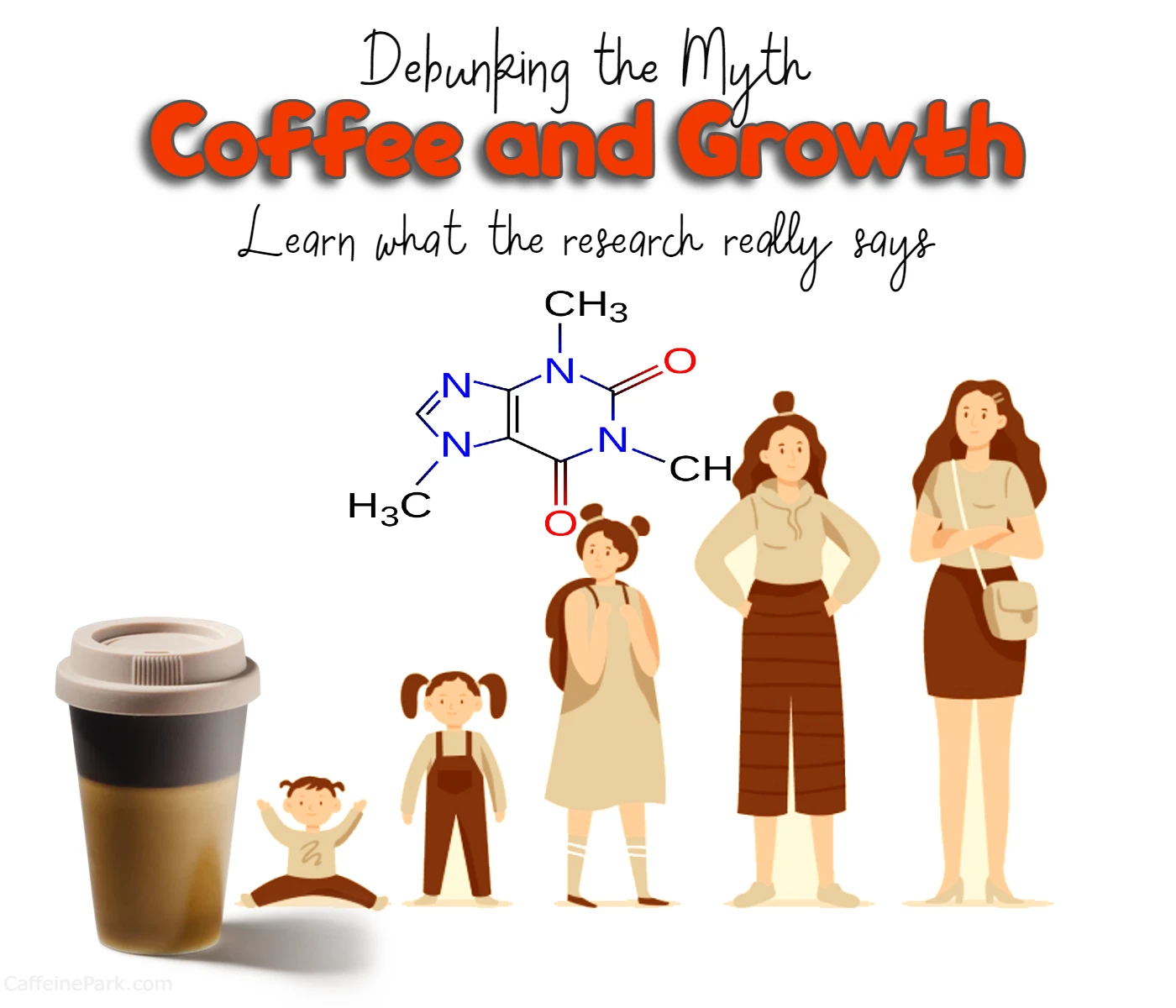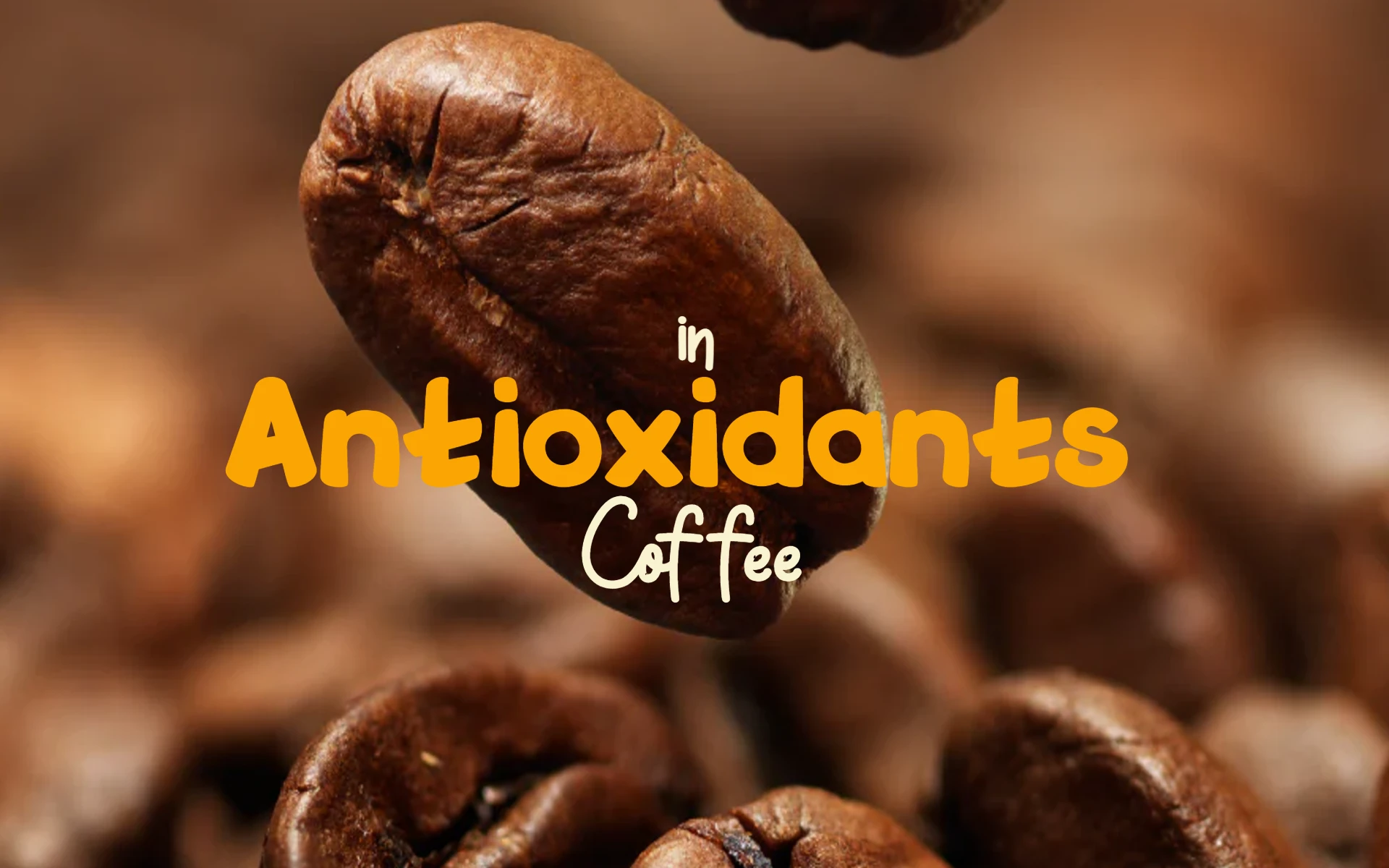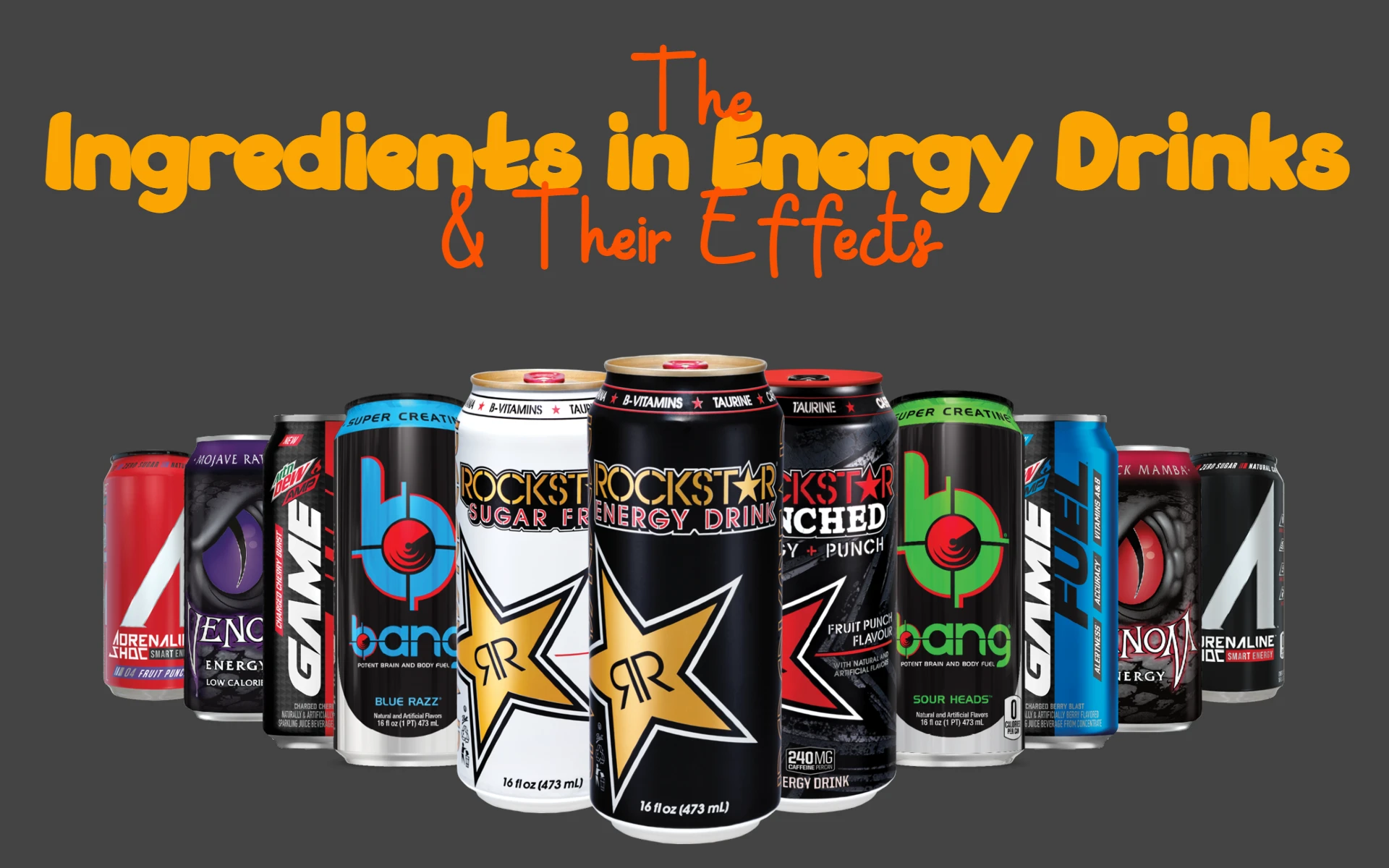
Energy drinks have become a popular alternative to traditional coffee and soda beverages. They contain a variety of ingredients, such as caffeine, sugar, vitamins, and herbs, that are marketed to provide a boost of energy and improve mental alertness. However, not all of the ingredients in energy drinks have been extensively studied, and some have raised concerns about their safety and potential health effects.
One of the primary ingredients in energy drinks is caffeine, which is a stimulant that can improve mental alertness, focus, and physical performance. However, excessive caffeine consumption can lead to side effects such as jitters, rapid heartbeat, and sleep disturbances. Energy drinks also often contain large amounts of sugar, which can contribute to obesity, tooth decay, and other health problems. Artificial sweeteners, such as aspartame, are sometimes used as a sugar alternative in energy drinks, but they have also been associated with potential health risks.
In addition to caffeine and sugar, energy drinks often contain a range of vitamins, minerals, and other ingredients that are marketed to have various health benefits. For example, some energy drinks contain B vitamins, which are important for energy metabolism and brain function. Others contain ingredients like ginseng, ginkgo biloba, and taurine, which are touted to improve mental performance and reduce stress. However, the evidence for these benefits is limited and more research is needed to fully understand their effects. It’s also important to note that many energy drinks contain high levels of vitamins and minerals, which can be harmful if consumed in excess.
Here are some common ingredients found in energy drinks and what they are supposed to do:
Sugar in Energy Drinks
Energy drinks are marketed as products that can increase alertness, focus, and energy levels. One of the most common ingredients found in energy drinks is sugar, which is added to provide a quick boost of energy. However, the high sugar content in energy drinks has led to concerns about their impact on health and well-being.
Amount of Sugar in Energy Drinks
The amount of sugar found in energy drinks varies, but most contain between 10 to 30 grams of sugar per serving. This is significantly higher than the recommended daily intake of added sugars, which is less than 10% of daily caloric intake. This can be especially concerning for people who consume more than one energy drink per day.
Health Concerns Associated with Sugar in Energy Drinks
Excessive sugar intake can lead to a range of health problems, including obesity, type 2 diabetes, heart disease, and cavities. Consuming high amounts of sugar in energy drinks can also cause spikes in blood sugar levels, which can lead to feelings of jitteriness, anxiety, and even headaches.
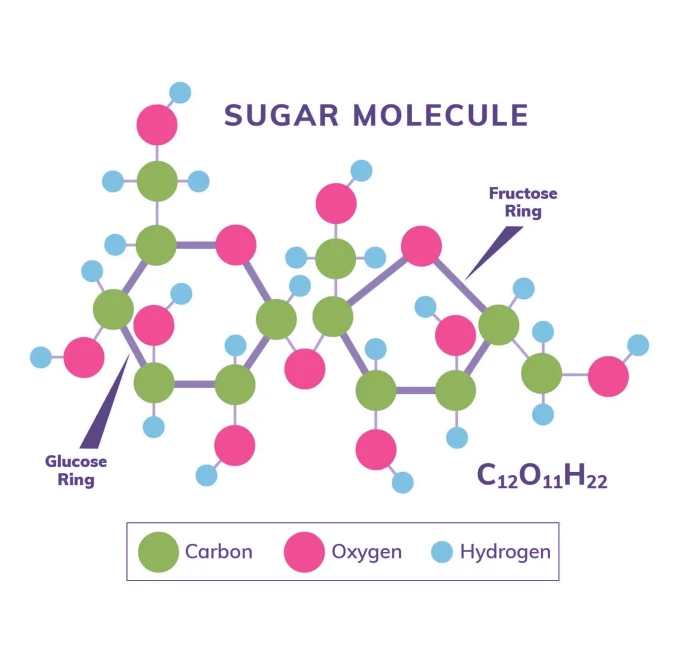
Alternative Sweeteners in Energy Drinks
In response to concerns about the high sugar content in energy drinks, some manufacturers have started to include alternative sweeteners such as stevia, aspartame, or sucralose in their products. These sweeteners are used to provide a sweet taste without adding calories or increasing blood sugar levels. However, some people may experience side effects when consuming artificial sweeteners, such as headaches, gastrointestinal distress, and allergic reactions.
Top 20 Energy Ingredients
Here are the top 20 energy drink ingredients and their effects:
- Caffeine
- Taurine
- Guarana
- B-Vitamins
- L-Theanine
- Glucuronolactone
- Yerba Mate
- Creatine
- Acai Berry
- Inositol
- Milk Thistle
- Ginkgo Biloba
- Artificial Sweeteners
- Niacin
- Ginseng
- Ginger
- Yohimbine
- BCAAs
- Quercetin
- Antioxidants
#1. Caffeine
Caffeine is a central nervous system stimulant that is commonly found in energy drinks. It is a naturally occurring substance that is found in over 60 plants including coffee beans, tea leaves, and cocoa beans. It has been used for centuries for its energizing effects and is now one of the most widely consumed psychoactive substances in the world.
Caffeine works by blocking the action of adenosine, a neurotransmitter that makes you feel drowsy. This leads to increased activity in the brain and a temporary boost in alertness and energy levels. Caffeine also increases the release of other neurotransmitters such as dopamine and norepinephrine, which can enhance mood and cognitive function.
The amount of caffeine in energy drinks can vary greatly, but they typically contain between 50-500 mg per serving. For comparison, a cup of coffee contains around 80-100 mg of caffeine, while a can of cola contains around 30-40 mg.
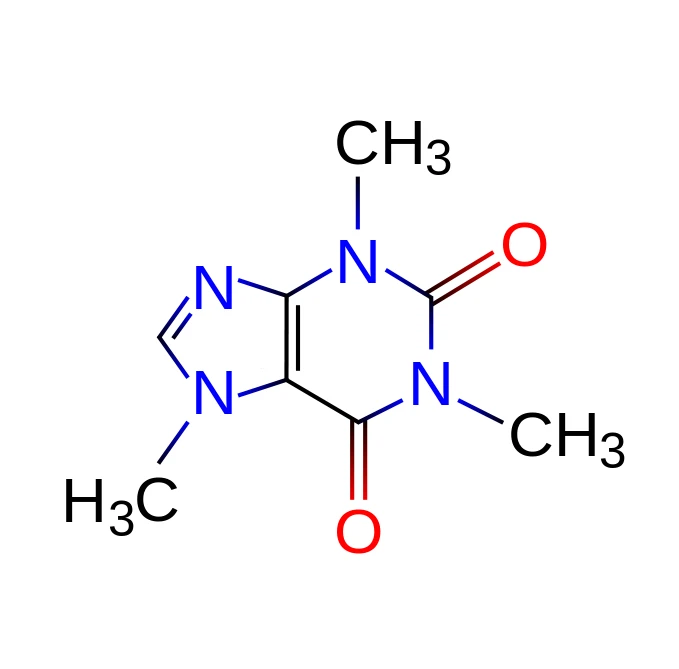
Caffeine is generally considered safe in moderate amounts, but excessive consumption can lead to negative side effects such as increased heart rate, anxiety, and trouble sleeping. It is also important to note that caffeine can have different effects on different people and that individual tolerance and sensitivity can vary greatly.
Caffeine is classified as a drug by the US Food and Drug Administration, and as such, it is subject to regulatory control. The FDA has established a maximum daily dose of 400 mg of caffeine for healthy adults, although this is considered to be a conservative estimate and some people may be able to tolerate more.
#2. Taurine
Taurine is an amino acid that is commonly found in energy drinks. It is commonly added to energy drinks due to its potential health benefits, including improved heart function and reduced risk of heart disease. However, more research is needed to fully understand the effects of taurine on the human body.
In the human body, taurine is involved in various functions such as regulating the levels of water and minerals in the blood, maintaining the health of cells in the heart and blood vessels, and supporting the immune system. Taurine is also thought to have a calming effect on the brain, which can help to reduce anxiety and improve sleep.
Taurine is found in a variety of foods, including fish and meat, but the body can also produce it. Energy drinks typically contain much higher levels of taurine than are found in these foods, so it is important to be aware of the potential side effects of consuming large amounts.
Potential Health Benefits of Taurine:
While more research is needed to fully understand the effects of taurine on the human body, there is some evidence that suggests it may have a number of potential health benefits. These include:
- Improved heart function: Taurine may help to improve heart function by reducing oxidative stress and improving blood flow to the heart.
- Reduced risk of heart disease: Taurine has been shown to lower blood pressure, reduce inflammation, and improve cholesterol levels, all of which may help to reduce the risk of heart disease.
- Improved athletic performance: Taurine may improve athletic performance by reducing muscle damage and improving recovery after exercise.
- Improved cognitive function: Taurine may help to improve cognitive function by reducing oxidative stress and improving blood flow to the brain.
- Reduced anxiety: Taurine may have a calming effect on the brain, which may help to reduce anxiety and improve sleep.
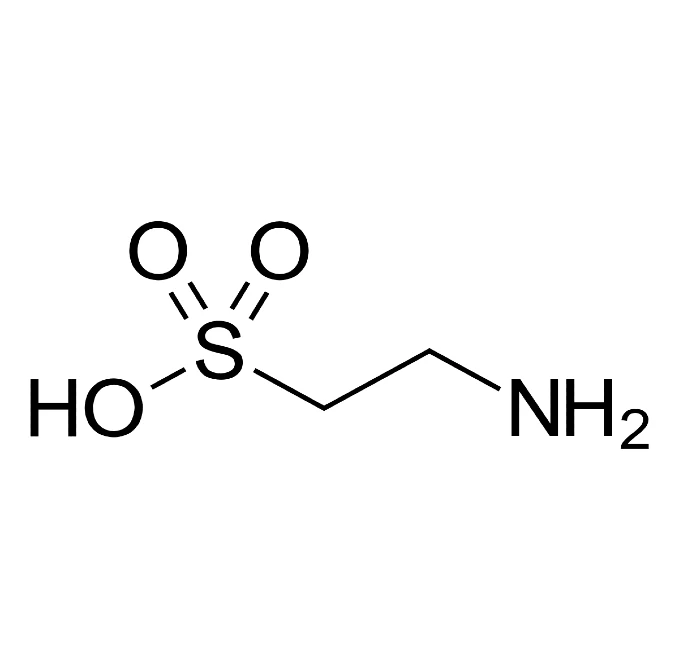
Potential Side Effects of Taurine:
While taurine is generally considered safe in moderate amounts, consuming large amounts of taurine from energy drinks or supplements may have potential side effects. These include:
- Insomnia: Consuming high amounts of taurine may cause insomnia or interfere with sleep patterns.
- Dehydration: Taurine may cause dehydration by increasing the production of urine, which can lead to excessive thirst and dry mouth.
- Increased heart rate: Taurine may increase heart rate, which can be particularly concerning for individuals with pre-existing heart conditions.
- Interaction with medications: Taurine may interact with certain medications, such as blood pressure medications and blood thinners, so it is important to speak with a doctor before consuming energy drinks or supplements that contain taurine.
It is important to note that these potential side effects may vary from person to person and are more likely to occur with high doses of taurine. It is also important to be aware of the amount of taurine in energy drinks, as some contain much higher levels of taurine than are considered safe.
#3. Guarana
Guarana is a climbing plant native to the Amazon rainforest in Brazil, which produces small red fruits containing seeds that are rich in caffeine. The seeds are dried, roasted, and ground to make a powder that is used as an ingredient in energy drinks, supplements, and other products. Guarana is one of the most widely used stimulants in the world, second only to caffeine.
How does Guarana work?
Guarana contains a higher concentration of caffeine than coffee, typically ranging from 2-4% compared to 1-2% for coffee beans. Caffeine is a stimulant that acts on the central nervous system, increasing alertness and improving cognitive performance. It also stimulates the release of adrenaline, which can lead to increased heart rate and blood pressure.
Benefits of Guarana
- Increases Alertness and Energy: Caffeine is a well-known stimulant that can increase alertness, reduce fatigue, and improve energy levels. Guarana, with its higher concentration of caffeine, can provide a more potent boost in energy and alertness compared to coffee.
- Enhances Cognitive Performance: Guarana can improve cognitive performance by increasing alertness and concentration, allowing you to work longer and harder.
- Supports Weight Loss: Guarana may help support weight loss by increasing metabolism and burning more calories.
- Antioxidant Properties: Guarana is rich in antioxidants that protect against cellular damage caused by free radicals.
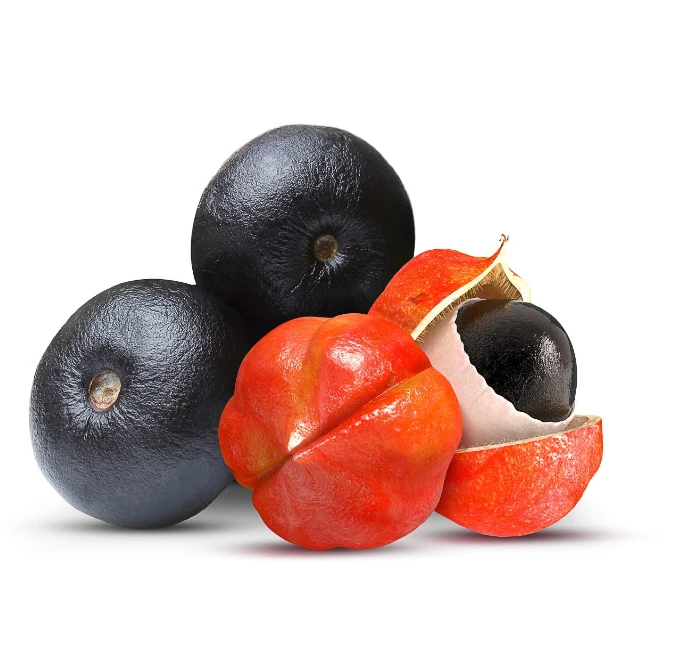
Potential Side Effects of Guarana
- Caffeine Overdose: Guarana contains a high amount of caffeine, which can lead to overdose symptoms such as rapid heartbeat, jitters, and insomnia if consumed in excessive amounts.
- Interaction with Medications: Guarana can interact with certain medications, such as antidepressants and stimulants, leading to increased side effects and potential harm.
- Pregnancy and Lactation: Pregnant women and nursing mothers should avoid guarana as it contains caffeine, which can affect the developing fetus or newborn.
- Allergic Reactions: Some people may experience allergic reactions to guarana, such as skin rashes, itching, and swelling.
Conclusion
Guarana is a powerful stimulant that can provide a boost in energy and alertness. However, it is important to use it in moderation and to be aware of its potential side effects, especially in combination with other stimulants or medications. If you have any concerns or medical conditions, it is always best to consult with a healthcare provider before using guarana or any other dietary supplement.
#4. B vitamins
B vitamins are a group of water-soluble vitamins that play important roles in the body, including energy metabolism. Many energy drinks contain high levels of B vitamins, particularly B12 and B6, and often market themselves as a way to boost energy levels and improve mental and physical performance.
B12 (Cobalamin)
B12 is a crucial nutrient that is involved in many important processes in the body, including the formation of red blood cells, DNA synthesis, and energy production. A deficiency of B12 can cause fatigue, weakness, and anemia.
B6 (Pyridoxine)
B6 is another B vitamin that is involved in energy metabolism and helps the body produce the hormones needed for proper brain function. It also plays a role in the synthesis of neurotransmitters, such as serotonin and dopamine, which are important for regulating mood and sleep.
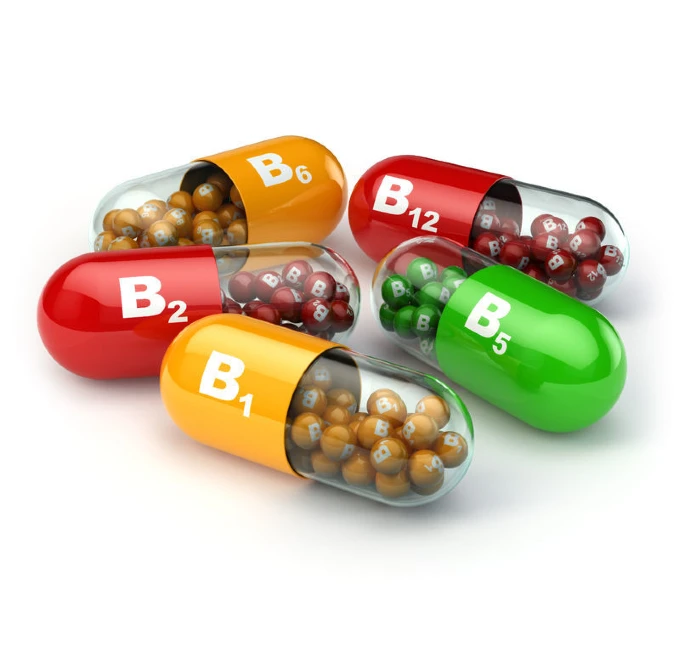
Benefits of B Vitamins in Energy Drinks
The high levels of B vitamins in energy drinks can provide a quick boost of energy for those who are deficient in these nutrients. They can also help improve mental clarity, mood, and physical performance. However, it is important to note that consuming too much B12 or B6 can lead to side effects, such as skin irritation and nerve damage.
Caution
It is important to note that while B vitamins are important for overall health, they are also readily available in a balanced diet and in dietary supplements. The high levels of B vitamins in energy drinks may not be necessary for most people and could even be harmful in large quantities. It is always best to speak with a healthcare provider before consuming energy drinks or taking any dietary supplements to determine if they are right for you and to ensure safe and appropriate use.
#5. L-Carnitine
L-carnitine is an amino acid that is commonly added to energy drinks. It plays a role in energy production by transporting long-chain fatty acids into the mitochondria, where they can be burned as fuel. This is why L-carnitine is sometimes marketed as a fat burner, although the evidence for this effect is mixed.
L-carnitine is produced naturally in the body, but some people may have low levels of it due to genetic factors or diet. It can also be obtained from dietary sources, such as red meat, dairy products, and some plants.
While L-carnitine has been studied for its potential health benefits, including improved exercise performance and heart health, more research is needed to fully understand its effects. Some studies have suggested that supplementing with L-carnitine may increase muscle mass and reduce fatigue, while others have found no significant benefits.
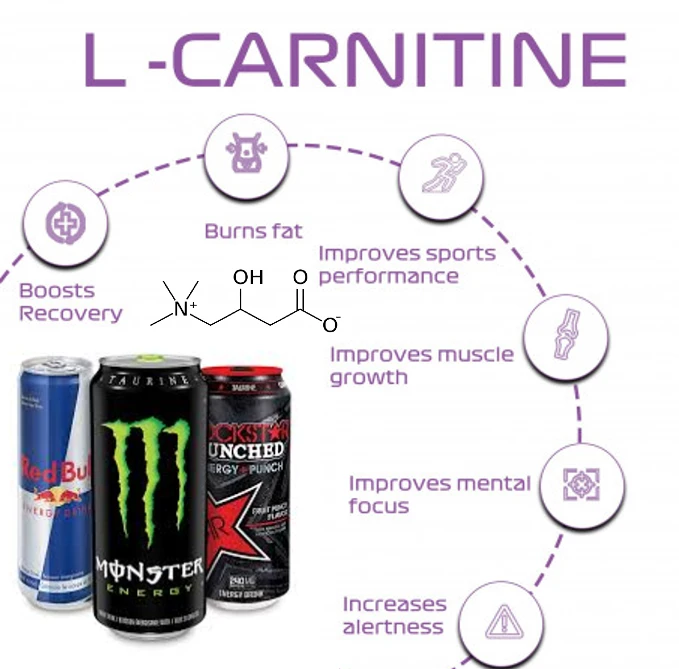
In terms of safety, L-carnitine is generally considered safe when taken in recommended doses. However, some people may experience side effects such as nausea, diarrhea, and stomach cramps. People with kidney or liver disease should also talk to their doctor before taking L-carnitine supplements.
Overall, the evidence for the benefits of L-carnitine as an ingredient in energy drinks is mixed, and more research is needed to determine its true effects on health and performance. If you’re considering trying an energy drink that contains L-carnitine, it’s important to talk to your doctor first, especially if you have any underlying health conditions.
#6. Yerba Mate
Yerba Mate is a type of tea made from the leaves of the Ilex paraguariensis plant, which is native to South America. It has been used for centuries by indigenous people for its energizing and medicinal properties. Yerba Mate contains caffeine, theophylline, and theobromine, which are compounds found in coffee and tea that have stimulant effects.
In energy drinks, Yerba Mate is used to providing a natural source of caffeine and to enhance the overall flavor profile of the drink. It is believed to improve mental alertness and physical performance and to enhance fat metabolism, leading to weight loss.
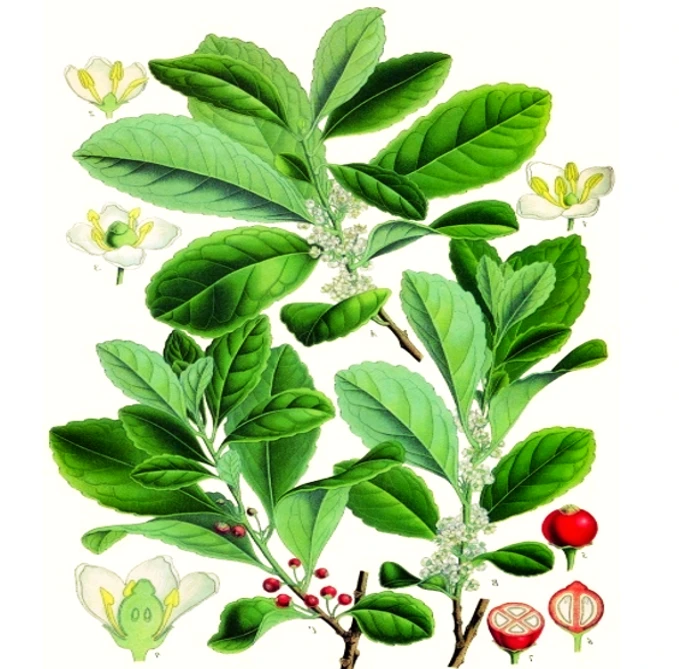
However, while Yerba Mate is generally considered safe, excessive consumption may lead to side effects such as nausea, heart palpitations, and anxiety. People with heart conditions, pregnant women, and children should limit their consumption of Yerba Mate or consult with their doctor before consuming it.
In conclusion, Yerba Mate is a popular ingredient in energy drinks due to its natural caffeine content and flavorful profile, but caution should be taken when consuming it in excessive amounts.
#7.Creatine
Creatine is a naturally occurring organic acid found in the human body, primarily in the muscles. It is synthesized in the liver, pancreas, and kidneys, and is also obtained through diet, primarily from meat and fish. Creatine has been widely used as a supplement in sports nutrition and has been the subject of numerous scientific studies, primarily related to its effects on performance and muscle growth.
Functions of Creatine in the Body
Creatine plays a crucial role in energy metabolism, serving as a stored form of high-energy phosphates which can be rapidly mobilized to generate ATP (adenosine triphosphate), the primary energy source for muscle contraction. By providing a quick source of energy, creatine supplementation has been shown to improve power output, strength, and endurance in high-intensity, short-duration activities such as weightlifting and sprinting.
Additionally, creatine has been shown to enhance muscle growth by promoting the synthesis of proteins and facilitating the uptake of amino acids into muscle cells. This has led to its use as a popular supplement for individuals looking to build muscle mass and improve body composition.
Dosage and Safety of Creatine
The standard recommended dosage of creatine supplementation is 3-5 grams per day. Most studies on the effects of creatine supplementation have used doses within this range, and it is considered safe for healthy individuals when used in this manner.
Creatine supplementation has been shown to be safe for most people when taken at recommended doses for up to 5 years. However, as with any supplement, it is important to talk to your doctor before starting to take creatine, especially if you have any pre-existing health conditions or take any medications.
In conclusion, creatine is a widely used supplement in sports nutrition with numerous studies demonstrating its benefits for improving power, strength, endurance, and muscle growth. When used at recommended doses, it is considered safe for most healthy individuals.
#8. Acai Berry
Acai Berry is a small, purple fruit that is native to the Amazon rainforest in Brazil. It is often touted as a superfood due to its high antioxidant content and potential health benefits.
Health Benefits of Acai Berry
- Antioxidant properties: Acai berries contain high levels of antioxidants, which can help to protect cells against damage caused by free radicals.
- Improved heart health: The anthocyanins in acai berries have been shown to help improve heart health by reducing inflammation, regulating cholesterol levels, and decreasing oxidative stress.
- Weight loss: Some studies have shown that consuming acai berries can help with weight loss, but more research is needed to confirm this.
- Increased energy levels: The high fiber and healthy fatty acid content in acai berries can help to provide a sustained energy boost.
- Improved digestive health: The fiber in acai berries can help to improve digestive health by promoting regular bowel movements and reducing the risk of constipation.
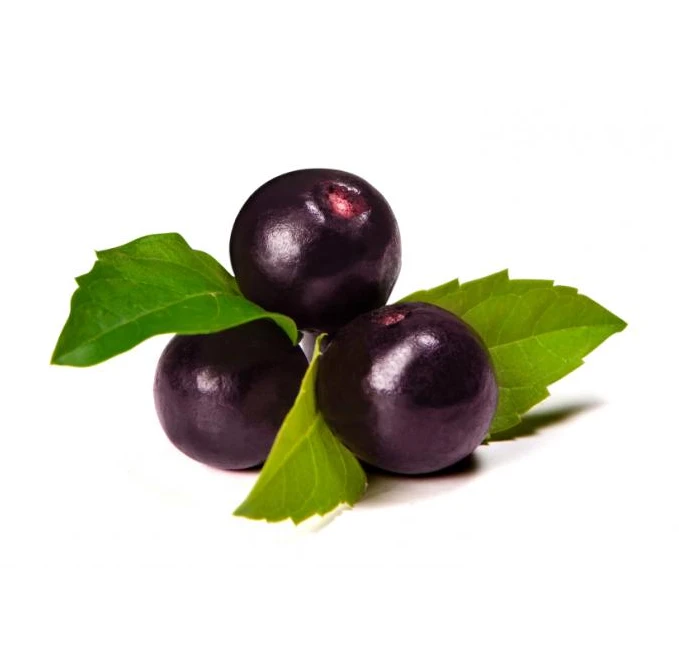
How to Consume Acai Berry
Acai berries can be consumed in a variety of ways, including:
- Fresh berries: Fresh acai berries can be difficult to find outside of the Amazon rainforest, but they can be consumed as a snack or added to smoothies or juices.
- Dried powder: Dried acai berry powder can be found in many health food stores and can be added to smoothies, and juices, or mixed into water.
- Supplements: Acai berry supplements are available in capsule or powder form and can be found in many health food stores.
It is important to note that while acai berries are generally considered safe, consuming large amounts of supplements or consuming contaminated acai berries can lead to adverse effects such as food poisoning or liver toxicity.
#9. Inositol
Inositol is a type of carbohydrate that is commonly found in many foods, including fruits, nuts, beans, and grains. It is also available in supplement form. Inositol is involved in several important functions in the body, including the regulation of insulin and blood sugar levels, as well as the communication between cells.
In energy drinks, inositol is sometimes included for its ability to support healthy brain function and mental well-being. Some research has suggested that inositol may help reduce anxiety, improve sleep quality, and support the overall health of the brain and nervous system.
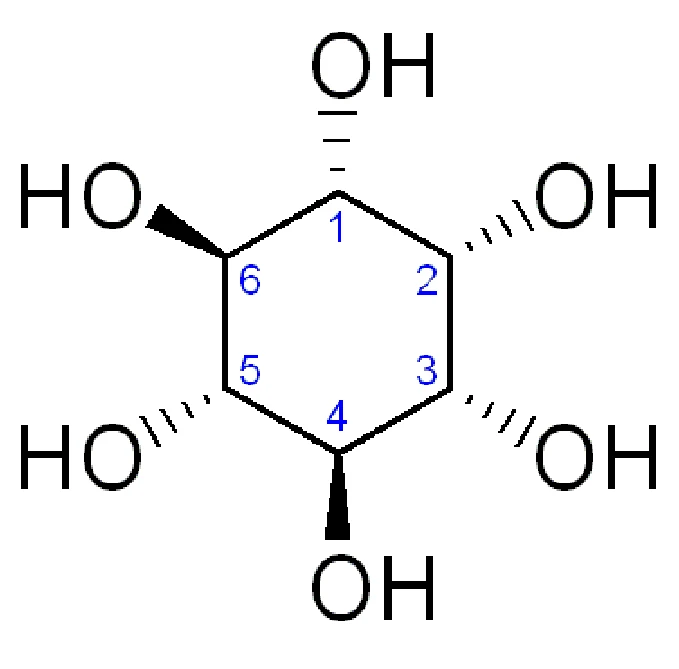
However, the scientific evidence supporting these claims is not strong, and more research is needed to fully understand the effects of inositol in energy drinks and on overall health. As with all supplements, it is important to talk to your doctor before taking inositol, especially if you have any underlying health conditions or are taking any medications.
#10. Glucuronolactone
Glucuronolactone is a naturally occurring substance found in the human body, as well as in some plants. It is a sugar molecule that is involved in several physiological processes, including the metabolism of drugs and toxins, and the production of connective tissue.
In energy drinks, glucuronolactone is often added for its supposed stimulant effects. Some people claim that it increases energy and alertness, but there is limited scientific evidence to support these claims.
While glucuronolactone is considered safe for most people, high doses can cause adverse effects, such as nausea, headaches, and dizziness. It is also important to note that consuming too much glucuronolactone from energy drinks can interact with certain medications, such as painkillers and antidepressants, and cause serious health problems.
Overall, more research is needed to fully understand the effects of glucuronolactone in energy drinks and its potential health implications. If you are considering consuming energy drinks, it is always best to talk to your doctor first to determine whether they are safe and appropriate for you.
#11. Milk Thistle
Milk Thistle is an herb that is commonly used as a liver tonic and digestive aid. The active compound in Milk Thistle is silymarin, which is a complex of flavonoids that are believed to have potent antioxidant and anti-inflammatory properties.
Milk Thistle is sometimes added to energy drinks because of its potential to support liver health and detoxification processes. Some research has suggested that silymarin may help protect the liver from damage caused by toxins such as alcohol, drugs, and chemicals.
However, the scientific evidence supporting the use of Milk Thistle for liver support is mixed and more research is needed to fully understand its effects. In general, Milk Thistle is considered to be safe when taken in recommended doses, although some people may experience side effects such as bloating, gas, and diarrhea.
Milk Thistle is also sometimes used to treat other conditions such as high cholesterol, type 2 diabetes, and certain skin conditions, although the evidence supporting these uses is limited. Before using Milk Thistle for any health condition, it is important to speak with a doctor or healthcare provider to determine if it is appropriate and safe.
#12. Ginkgo Biloba
Ginkgo Biloba is an herbal extract that is often found in energy drinks. This ingredient is derived from the Ginkgo Biloba tree and has been used for centuries in traditional medicine for its potential health benefits.
One of the main reasons that Ginkgo Biloba is included in energy drinks is its reputation as a cognitive enhancer. Some studies have shown that it may improve blood flow to the brain and help with memory and concentration. This is why it is sometimes referred to as a “brain booster” or “memory enhancer”.
However, it is important to note that there is limited scientific evidence to support the effectiveness of Ginkgo Biloba for these purposes. Many of the studies that have been conducted have had small sample sizes or have been conducted in animals, rather than humans. More research is needed to fully understand the potential benefits of this ingredient.

Additionally, some people may experience side effects when taking Ginkgo Biloba, including headache, nausea, dizziness, and gastrointestinal discomfort. It is also important to speak with your doctor before taking this ingredient, especially if you are on medication or have a pre-existing medical condition.
In conclusion, while Ginkgo Biloba may have some potential benefits, more research is needed to fully understand its effectiveness. It is also important to consider the potential side effects and speak with a doctor before taking this ingredient.
#13. Artificial Sweeteners
Artificial sweeteners are often used as a substitute for sugar in energy drinks. Some of the most commonly used artificial sweeteners include aspartame, saccharin, acesulfame potassium, and sucralose.
Aspartame
Aspartame is a low-calorie artificial sweetener that is commonly used in energy drinks and other food products as a sugar substitute. It is approximately 200 times sweeter than sugar and has no calories.
Saccharin
Saccharin is a low-calorie artificial sweetener that is commonly used in energy drinks and other food products. It is approximately 300-500 times sweeter than sugar and has no calories.
Acesulfame Potassium
Acesulfame potassium (ACE-K) is a low-calorie artificial sweetener that is commonly used in energy drinks and other food products. It is approximately 200 times sweeter than sugar and has no calories.

Sucralose
Sucralose is a low-calorie artificial sweetener that is commonly used in energy drinks and other food products as a sugar substitute. It is approximately 600 times sweeter than sugar and has no calories.
Artificial sweeteners are often used in energy drinks because they provide a sweet taste without adding any calories. However, the safety of artificial sweeteners has been a subject of debate and research, with some studies suggesting a possible link between artificial sweeteners and health problems such as obesity, type 2 diabetes, and heart disease. It is important to note that the evidence linking artificial sweeteners to health problems is not conclusive, and more research is needed to fully understand the potential effects of artificial sweeteners on health.
#14. Niacin
Niacin, also known as Vitamin B3, is a water-soluble nutrient that is often added to energy drinks. Niacin is important for various functions in the human body, including converting food into energy, maintaining healthy skin, and keeping the nervous system functioning properly.
In energy drinks, niacin is often added to help improve energy levels and cognitive function. Some research suggests that niacin may help increase blood flow and improve the delivery of oxygen and nutrients to the brain, which could help enhance cognitive function and reduce mental fatigue.
However, it is important to note that high doses of niacin can cause side effects such as flushing, itching, and tingling sensations. In some cases, high doses of niacin can also lead to more serious side effects, such as liver damage or an increased risk of heart disease.
It is recommended to talk to a doctor or healthcare professional before consuming energy drinks with niacin, especially if you have any underlying health conditions or take any medications. It is also important to be mindful of the overall amount of niacin consumed, as taking high doses can lead to adverse effects.
#15. Ginseng
Ginseng is an herbal ingredient that is commonly found in energy drinks. It is a root that is native to Asia and North America and has been used for centuries in traditional medicine for its health benefits. Ginseng is believed to help increase energy levels, improve mental and physical performance, and boost the immune system.
There are two main types of ginseng: Asian ginseng (Panax ginseng) and American ginseng (Panax quinquefolius). Asian ginseng is considered to be more stimulating and is often used to boost energy, while American ginseng is considered to be more calming and is used to reduce stress.
In energy drinks, ginseng is typically used in combination with other ingredients, such as caffeine, to enhance its effects. The exact amount of ginseng used in energy drinks can vary greatly, and it is important to check the label to determine the specific amount in each serving.
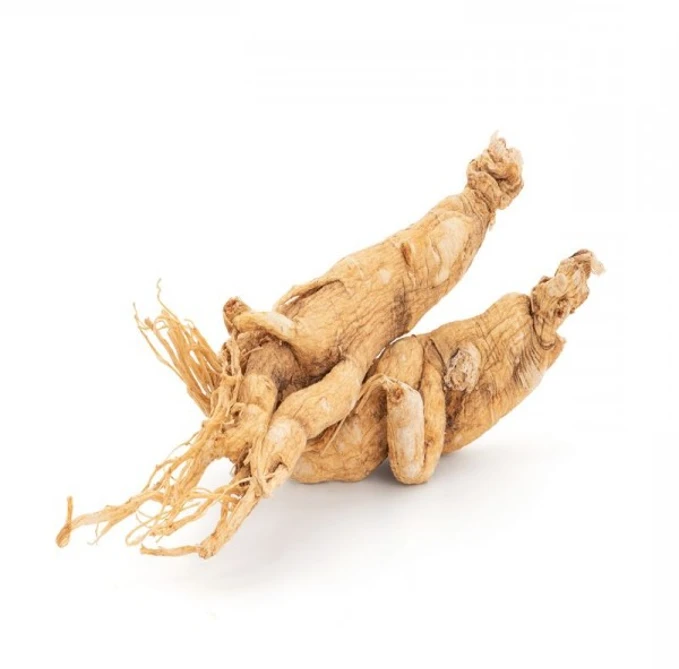
It is also important to note that ginseng can have potential side effects, such as increased heart rate, headache, and gastrointestinal problems. Additionally, ginseng can interact with certain medications, so it is important to speak with a healthcare provider before using ginseng or consuming energy drinks that contain ginseng.
Overall, ginseng is a commonly used ingredient in energy drinks that is believed to have potential health benefits, but it is important to be cautious and informed when using it.
#16. Ginger
Ginger is a popular ingredient used in many energy drinks. It is a root that has a long history of being used for medicinal purposes and is known for its anti-inflammatory and antioxidant properties. Many people believe that ginger can provide a boost of energy and improve mental clarity, making it an attractive addition to energy drinks.
Studies have shown that ginger can help to reduce fatigue and improve physical performance in athletes. This is thought to be due to its ability to improve blood flow and reduce muscle pain, making it easier to exercise for longer periods of time. Ginger also has a positive effect on the digestive system, which can help to improve overall energy levels.
In energy drinks, ginger is typically added in small quantities and is combined with other ingredients like caffeine, vitamins, and minerals. Some energy drinks also include ginger extract, which is thought to be more potent and more effective than the root itself.
It is important to note that while ginger is generally considered safe, excessive consumption can lead to side effects like heartburn, bloating, and gas. Therefore, it is important to follow the recommended serving size on the energy drink label.
Overall, ginger is a versatile ingredient that can provide a range of health benefits when consumed in moderation. If you are looking for an energy drink that includes ginger, be sure to read the ingredients label and choose a product that meets your specific needs and preferences.
#17. Yohimbine
Yohimbine is an alkaloid found in the bark of the Pausinystalia yohimbe tree, which is native to West Africa. It has been used for centuries as a natural aphrodisiac and treatment for erectile dysfunction. In recent years, yohimbine has been included as an ingredient in some energy drinks, as it is thought to have energy-boosting properties.
Yohimbine works by blocking alpha-2 adrenergic receptors in the body, which play a role in regulating blood flow and fat metabolism. By blocking these receptors, yohimbine can increase blood flow and release stored fat, which can lead to improved energy levels. However, it is important to note that yohimbine can also cause some negative side effects, such as increased heart rate, anxiety, and insomnia.
In terms of its efficacy as an energy-boosting ingredient, the scientific evidence is mixed. Some studies have found that yohimbine can increase energy levels, while others have found no significant effects. The dose of yohimbine in energy drinks can vary widely, and in some cases, it may not be included in significant enough amounts to have a noticeable effect.
Additionally, the safety of yohimbine as a long-term ingredient in energy drinks is not well established. The FDA has issued warnings about the use of yohimbine as a supplement, as it can interact with certain medications and has the potential to cause serious side effects, especially in high doses.
#18. BCAAs
BCAAs, or Branched Chain Amino Acids, are essential amino acids that play an important role in muscle growth and repair. The three BCAAs are leucine, isoleucine, and valine. They are called “branched-chain” because their chemical structure has a branching shape.
BCAAs can be found in many foods, including meats, dairy products, and legumes. They are also available as supplements, including energy drinks. Energy drinks that contain BCAAs are marketed as providing a boost for physical activity, especially for athletes and bodybuilders.
Studies have shown that BCAAs can help improve muscle protein synthesis, increase endurance, and reduce muscle soreness. They are also thought to help improve focus and mental clarity. However, more research is needed to fully understand the effects of BCAAs in energy drinks, as well as their safety.
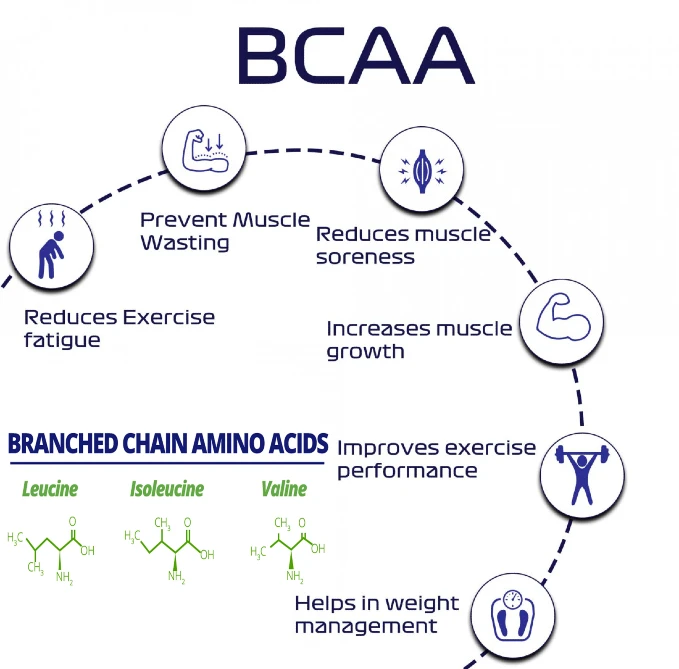
It’s important to note that while BCAAs are essential amino acids, they are not a cure-all for physical activity or weight loss. A well-rounded diet and regular exercise are still crucial for overall health and fitness. Additionally, overconsumption of BCAAs can lead to side effects, such as stomach problems, fatigue, and changes in insulin levels.
#19. Quercetin
Quercetin is a naturally occurring flavonoid that is commonly found in a variety of fruits, vegetables, and herbal products. Energy drinks, it is included as an ingredient for its potential health benefits, including antioxidant properties, anti-inflammatory effects, and improved cardiovascular health.
Studies have shown that quercetin supplementation may help improve exercise performance, increase endurance, and reduce muscle damage and inflammation. It is also believed to have beneficial effects on the immune system and may help lower the risk of certain chronic diseases, such as heart disease and certain types of cancer.
However, it is important to note that the evidence on the effects of quercetin in energy drinks is still limited, and more research is needed to fully understand its potential benefits and side effects. Additionally, energy drinks often contain large amounts of caffeine, which can interact with quercetin and affect its effects.
Therefore, it is important to speak with a healthcare provider before consuming energy drinks that contain quercetin, particularly if you have any underlying health conditions or are taking any medications. Additionally, it is important to follow recommended serving sizes and not exceed the recommended daily intake of quercetin.
#20. Antioxidants
Antioxidants are substances that protect the body from the harmful effects of oxidative stress. They are commonly found in many food sources such as fruits, vegetables, nuts, and seeds. In recent years, some energy drinks have added antioxidants to their ingredients list with the claim that they can help improve athletic performance and enhance the overall health benefits of the drink.
There are several types of antioxidants that can be found in energy drinks, including vitamins C and E, beta-carotene, and selenium. Some energy drinks also contain plant-based antioxidants like green tea extract, acai berry, and goji berry.
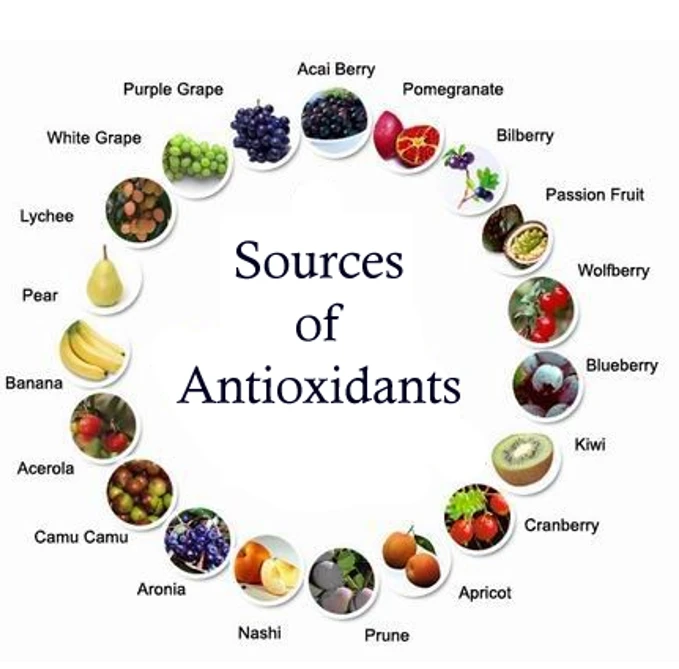
One of the main benefits of antioxidants is their ability to reduce oxidative stress in the body, which can lead to improved athletic performance and recovery. Antioxidants can also help to reduce inflammation, improve heart health, and enhance cognitive function.
While antioxidants can be beneficial when consumed in moderation, consuming too much can have the opposite effect. It’s important to remember that energy drinks contain high amounts of caffeine and sugar, which can have negative effects on the body when consumed in excess. Additionally, some energy drinks contain artificial sweeteners, which have been linked to health concerns.
Summary
Energy drinks are beverages that typically contain high levels of caffeine, along with various other ingredients such as vitamins, amino acids, herbs, and minerals. The specific ingredients in an energy drink can vary greatly between brands and products.
Caffeine is the most commonly consumed psychoactive drug in the world, and it is included in energy drinks because it is known to improve alertness, attention, and concentration. Other common ingredients in energy drinks include taurine, an amino acid that is believed to enhance physical performance, and guarana, a natural stimulant found in the Amazonian rainforest.
B vitamins, such as B6 and B12, are also frequently found in energy drinks, as they are important for maintaining energy levels and proper brain function. Other popular ingredients include L-carnitine, which is used for energy production and fat metabolism, and yerba mate, a plant-based stimulant used for increased energy and mental alertness.
There are also a variety of additional ingredients that may be included in energy drinks, such as ginkgo biloba for improved cognitive function, artificial sweeteners to reduce calories, and niacin for cardiovascular health. However, the safety and effectiveness of these ingredients in energy drinks have been widely debated, and more research is needed to fully understand their impact on health and wellness.
Overall, it is important to understand the specific ingredients and potential effects of the energy drinks you consume, as well as to be mindful of your overall caffeine and sugar intake. If you are considering trying an energy drink, it is best to consult with a healthcare professional to ensure it is safe and appropriate for you.
FAQs
An energy drink is a type of beverage that contains ingredients, such as caffeine and sugar, that are meant to boost energy and enhance mental alertness.
The most common ingredients in energy drinks include caffeine, sugar, taurine, vitamins, and herbal extracts. Other ingredients may include guarana, ginseng, and L-carnitine.
The amount of caffeine in an energy drink can vary depending on the brand and the size of the drink. On average, an 8-ounce energy drink contains between 50 to 150 milligrams of caffeine.
Excessive consumption of energy drinks can lead to negative health effects, such as increased heart rate, high blood pressure, and dehydration. It is recommended to limit energy drink consumption and to not exceed the recommended daily limit of 400 milligrams of caffeine.
Caffeine, a common ingredient in energy drinks, is a stimulant that can be habit-forming. Over time, excessive consumption of energy drinks can lead to a physical dependence on caffeine, resulting in withdrawal symptoms when caffeine intake is reduced or stopped.
High levels of caffeine and other stimulants in energy drinks can increase heart rate and blood pressure, potentially leading to heart problems. People with pre-existing heart conditions should be cautious when consuming energy drinks.
Yes, energy drinks can affect sleep. The caffeine in energy drinks can make it difficult to fall asleep and stay asleep, leading to sleep disturbances and daytime fatigue.
Energy drinks are not recommended for children. The high levels of caffeine and sugar in these drinks can be harmful to growing bodies and may lead to negative health effects.
Excessive consumption of energy drinks can lead to weight gain, as many of these drinks are high in sugar and calories.
Some of the ingredients in energy drinks, such as taurine and caffeine, may enhance physical performance during exercise. However, it is important to note that excessive consumption of energy drinks can lead to negative health effects and should be limited.
Read More:



